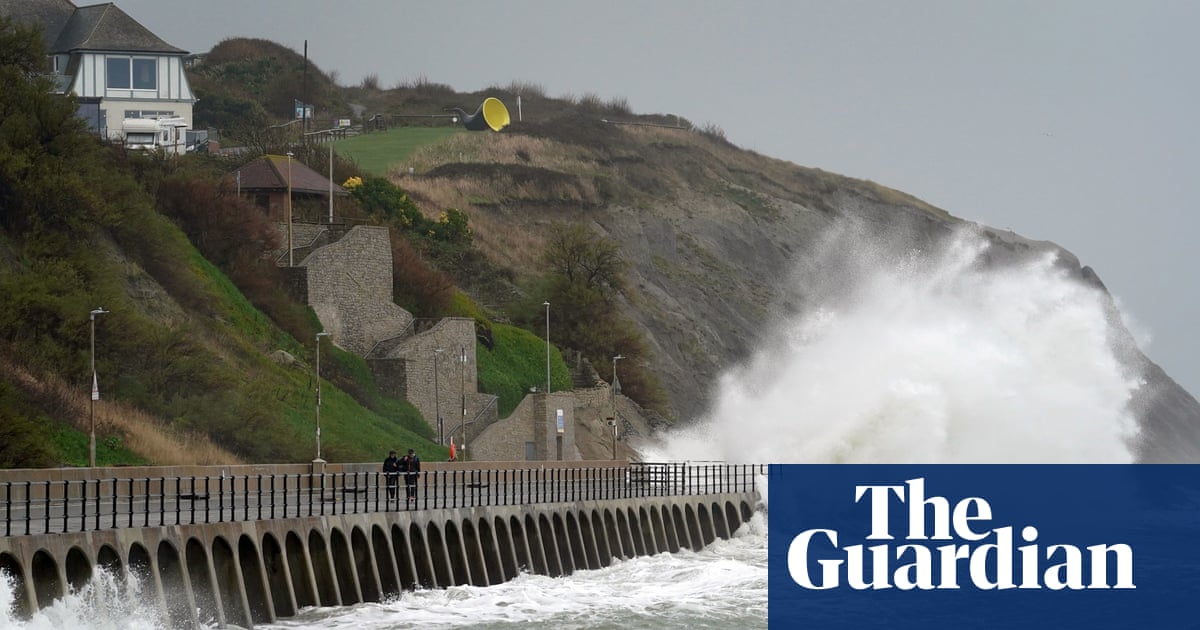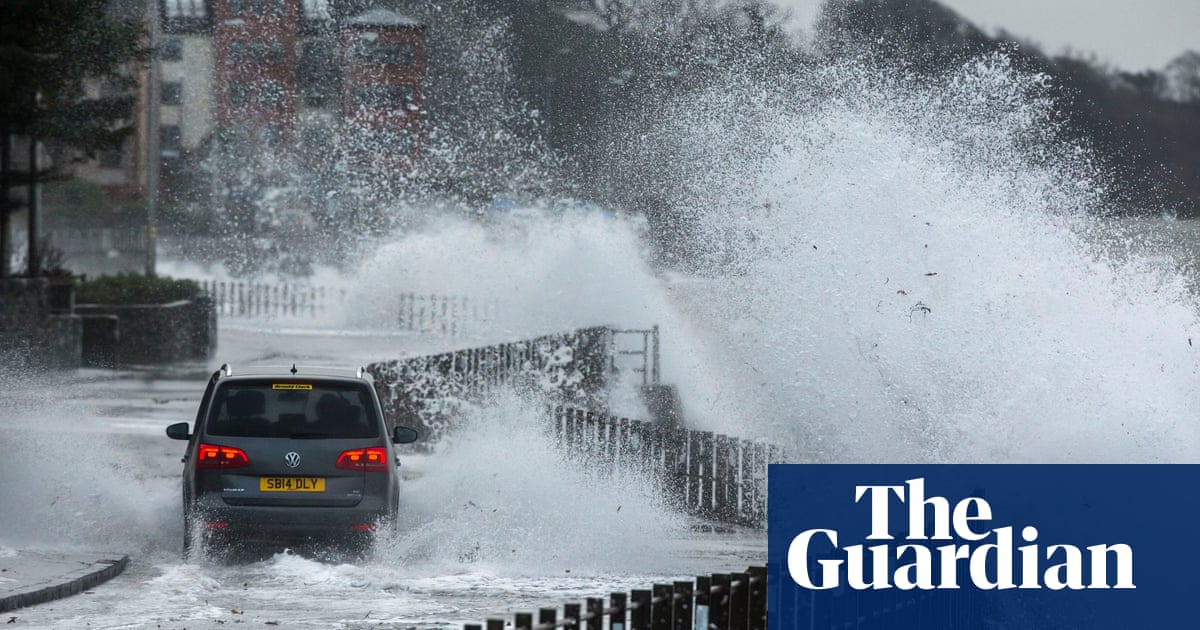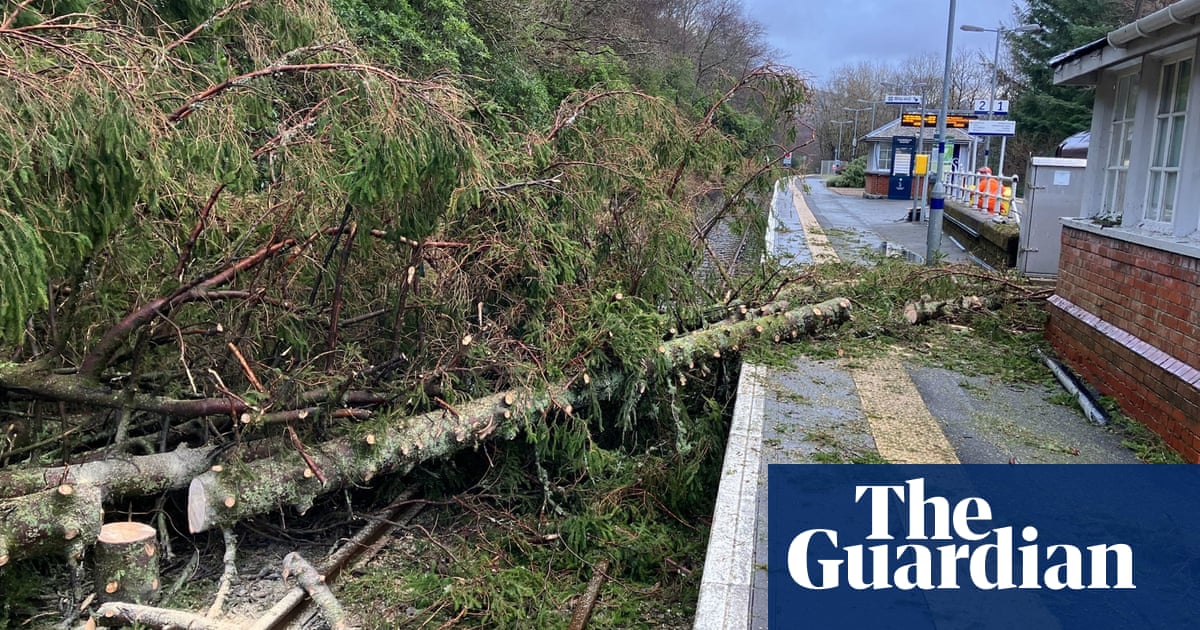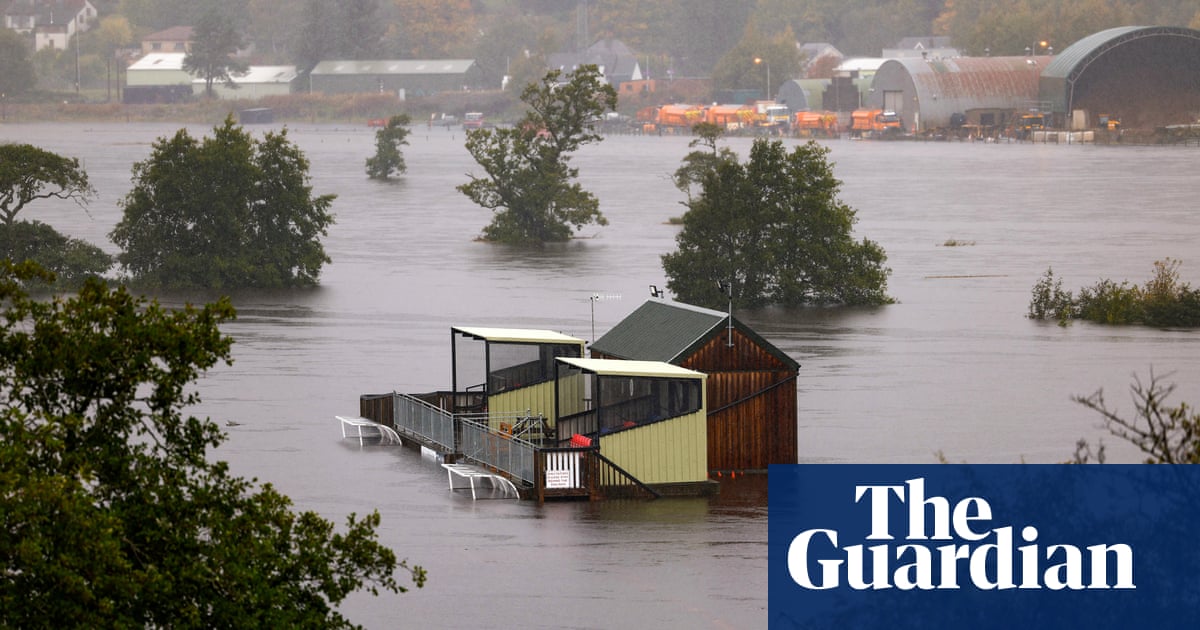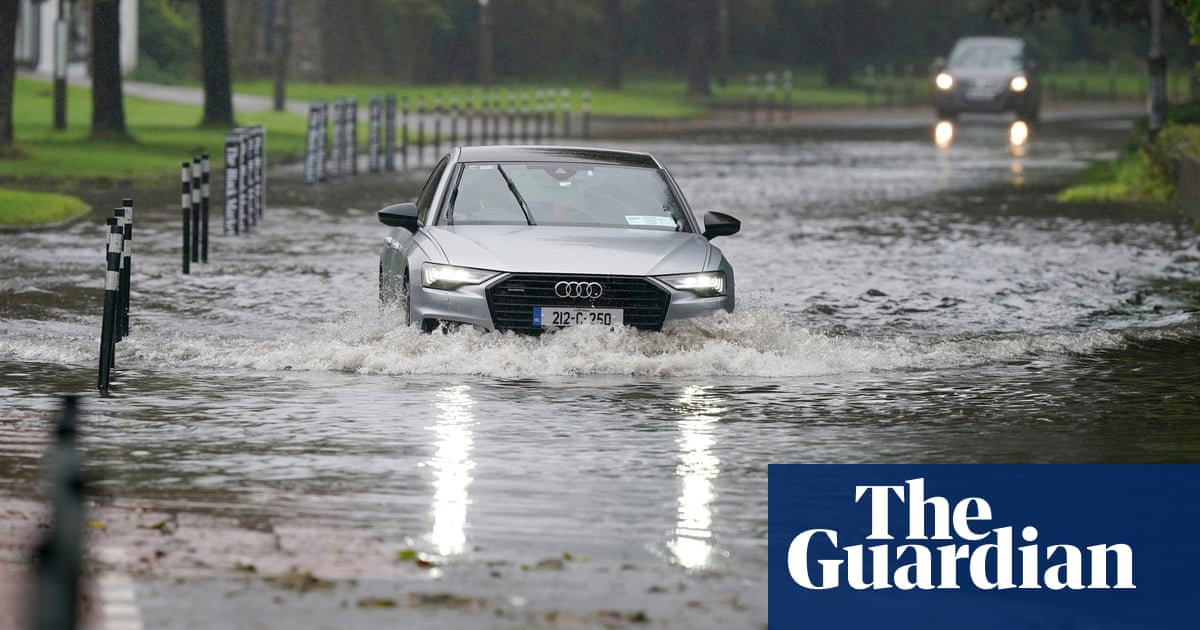
Gusts of 70mph were recorded as the first named storm of the autumn, Agnes, swept across Britain and Ireland, damaging buildings, causing travel delays and leaving homes without power.
The Met Office issued severe weather warnings covering much of the UK, where strong winds and heavy rain were expected on Wednesday evening and into Thursday.
Named after the Irish astronomer and science writer Agnes Mary Clerke, the storm brought winds of 70mph to south-west Ireland with gusts of up to 80mph in coastal areas and 60mph inland predicted for parts of Britain.
There was travel disruption in Northern Ireland and the Irish republic with ferries and flights cancelled or diverted. A roof was blown off a building in the seaside resort of Youghal, County Cork.
In Northern Ireland the department for infrastructure warned that strike action might affect the clear-up. Antrim Castle grounds and a number of golf courses were closed.
Wind speeds of 63mph were recorded on the Isles of Scilly off the Cornish coast, where more than 100 properties were left without power. There were 60mph gusts in Milford Haven, south-west Wales, and 58mph in Glenanne, Northern Ireland.
There was heavy rainfall in some areas: 22mm in Glenanne and in Lough Fea, also in Northern Ireland, and 20mm in Egremont, Cumbria.
The Met Office said flooding could be expected in some places and warned there could be danger to life from flying debris and falling trees.
It said power cuts were likely and mobile phone services could go down. Road, rail, air and ferry services could be affected and some roads and bridges were likely to close.
The weather service added that there was “a small chance” of injuries and danger to life from large waves and beach material being thrown on to sea fronts, coastal roads and properties.
The Met Office asked people to secure outdoor furniture, fasten windows and doors tight, check fences and roof tiles were secure and clear guttering of leaves and other debris.
The Royal National Lifeboat Institution (RNLI) advised people to stay away from stormy seas and cliff edges.
The RNLI water safety partner, Sam Hughes, said: “It is not worth risking your life. If you see someone else in danger in the water, call 999 or 112 and ask for the coastguard. If you have something that floats that they can hold on to, throw it to them. Don’t go in the water yourself – you may end up in difficulty too.”
Bev Allen, the commander of Humber Maritime Rescue Coordination Centre, said: “The first few storms of the autumn and winter are always a little frightening for us. As people are still in summer mode, the power of the waves can take them by surprise.
“We would encourage people to stay away from the water’s edge in stormy weather – it’s not worth risking your life for that selfie. Keep off groynes, piers, jetties and harbour walls. If you can feel the spray, you’re too close.”
The Environment Agency has put in place five flood alerts in England, meaning flooding is possible, along the north Devon and north Cornwall coasts, the Mersey estuary at Warrington and the Upper River Derwent in the Lake District.
The storm was named after a deep area of low pressure developed in the Atlantic, boosted by energy from Tropical Storm Ophelia, which hit the north-east coast of the US over the weekend.




